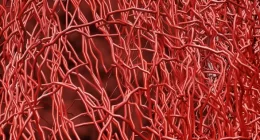According to a new study research, it is said that turmeric may cause liver damage. Turmeric is a delicious spice that can be found in a variety of curry dishes, soups, chilis, meat dishes, and even the trendy golden milk latte. It’s been used for thousands of years in places like India, West Africa, and Jamaica, and it’s also a common ingredient in many Chinese medicine practices to help with inflammation, blood health, and other issues.
While various cultures have been exploiting the health benefits of this spice for centuries, turmeric only recently made its way into Westernized practices. Although the FDA has declared turmeric and turmeric supplements to be “generally safe,” a recent study claims that this spice may have negative effects on liver health.
Turmeric has traditionally been used in a wellness context to combat inflammation and is believed to have antioxidant properties, which explains the popularity of golden milk lattes and turmeric supplements. But, aside from the inconvenient experience of having yellow-stained hands, there hasn’t been much discussion about any negative side effects of turmeric consumption—until recently.
The study in details
Published by the American Journal of Medicine in October ’22, researchers assessed the correlation between turmeric intake and the potential for liver damage within those enrolled in the U.S. Drug-Induced Liver Injury Network (DILIN).

According to the study, researchers found a total of 16 cases of turmeric-associated liver injuries among those enrolled in the DILIN program between 2011–2022. The extent of these injuries reportedly ranged from more moderate to severe, resulting in five hospitalizations and even one death due to acute liver damage. Further chemical analysis confirmed that three of these patient also consumed turmeric in conjunction with black pepper, an ingredient that many experts suggest taking with turmeric since it helps the body digest it more effectively.
While the findings of this study are significant, the low amount of reported liver across that 10-year period suggests that perhaps more research is needed. It’s clear that there’s a need to investigate the reasoning behind why turmeric may be the catalyst to such health complications.
What other reports claim
Although the findings of this study may seem marginal, turmeric’s propensity to possibly lead to liver damage is not one to discount. This is not the first study to connect liver damage to turmeric consumption; thus the potential dangers are worth taking into consideration.
There were two separate cases of adults who experienced drug-induced liver injury from turmeric, reported in the International Medical Case Reports Journal in 2021. Also in Tuscany, several more cases of liver injury from turmeric consumption have also been reported.
These reports shouldn’t necessarily cause any immediate concern or alarm, as liver damage directly resulting from turmeric consumption still appears to be a rare occurrence. However, if you or someone you know frequently cooks with turmeric or takes turmeric supplements on a regular basis, it may be worth consulting a doctor or dietitian before adding another spoonful to your latte or curry.
ALSO READ: Diabetes Warning Signs and When to Seek Help









